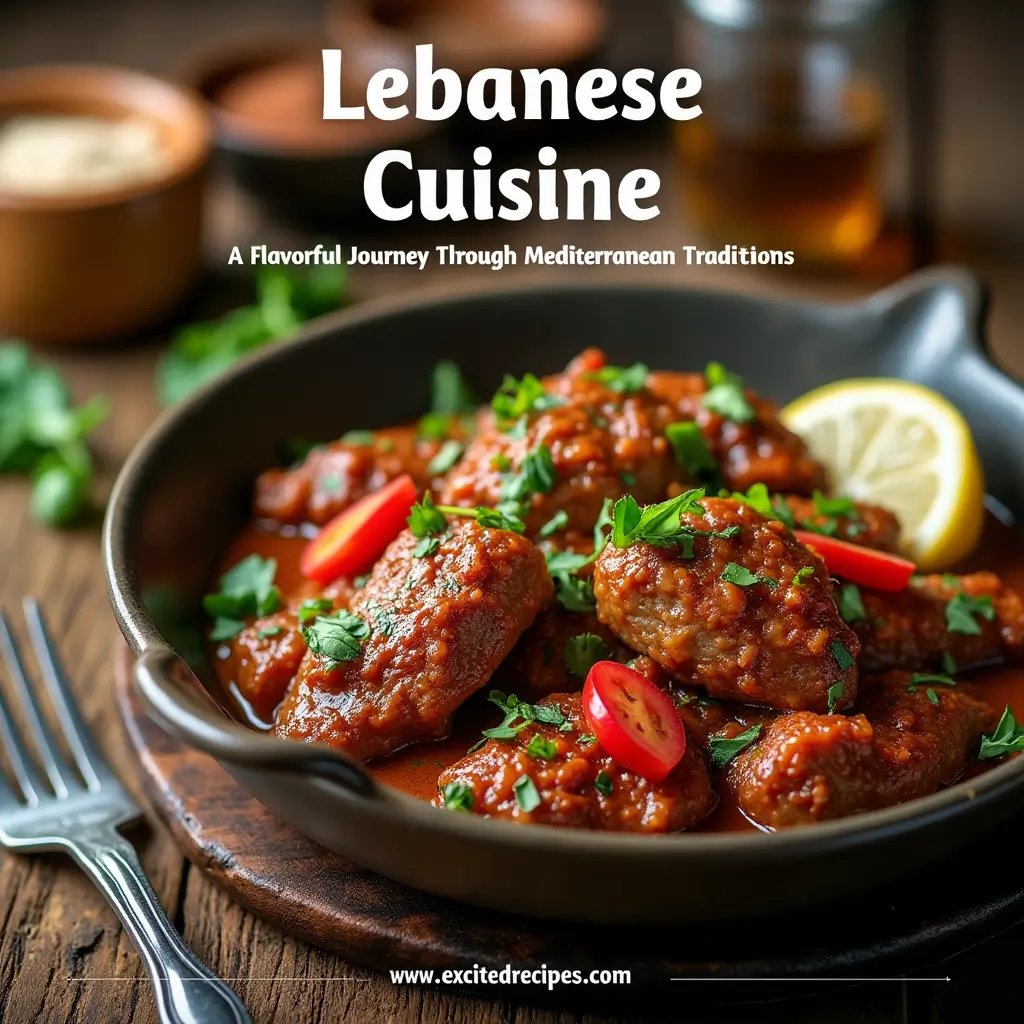Lebanese Cuisine 2025: A Flavorful Journey
Table of Contents
Lebanese cuisine is more than just food—it’s a rich tapestry of history, culture, and family traditions woven together through generations of passionate cooking. Each dish tells a story, each ingredient carries a memory, and every meal is an invitation to connect and celebrate life’s simple pleasures.
The Mediterranean Essence of Lebanese Cooking
At the heart of Lebanese cuisine lies the Mediterranean diet, renowned worldwide for its health benefits and incredible flavors. Unlike strict dietary regimens, this approach to eating is about experiencing food as a joyful, communal experience. Fresh vegetables, olive oil, whole grains, and lean proteins aren’t just ingredients—they’re a lifestyle.
Imagine a typical Lebanese table: colorful mezze platters spread out, inviting everyone to share, taste, and connect. Hummus, smooth and creamy, sits alongside baba ganoush with its smoky undertones. Fresh herbs like parsley and mint are chopped with precision, releasing their aromatic oils and transforming simple dishes into extraordinary experiences.
Key Ingredients That Define Lebanese Cooking
Several ingredients are fundamental to Lebanese cuisine, each bringing its unique character:
- Extra Virgin Olive Oil: Not just a cooking medium, but a cultural treasure. Lebanese olive oil is often produced by small family farms, with generations of expertise poured into every pressing.
- Za’atar: A spice blend that’s practically a national symbol. Combining dried thyme, sumac, sesame seeds, and salt, za’atar is sprinkled on breads, mixed into oils, and used as a seasoning that speaks of Lebanese terroir.
- Tahini: Made from ground sesame seeds, this creamy paste is essential in hummus, dressings, and many traditional desserts. Its nutty flavor adds depth and complexity to countless dishes.


Culinary Techniques: More Than Just Cooking
Lebanese cooking isn’t just about recipes—it’s about techniques passed down through families. Take toum, for instance—a garlic sauce so perfect it can elevate any dish from ordinary to extraordinary. Making it requires patience, skill, and a deep understanding of how ingredients interact.
Techniques like clarifying butter, perfectly cooking chickpeas, and meticulously chopping herbs aren’t just cooking skills—they’re a form of cultural expression. Each movement in the kitchen connects the cook to generations of culinary wisdom.
Vegetarian Delights and Global Influences
Contrary to popular belief, Lebanese cuisine offers incredible vegetarian options. Dishes like mujadara—a comforting mix of lentils and rice—prove that plant-based meals can be both nutritious and deeply satisfying. Muhammara, a red pepper and walnut dip, showcases how vegetarian dishes can be complex and exciting.
A Journey Through Flavors: From Mezze to Desserts
Lebanese meals are a journey, starting with mezze—small plates designed for sharing and conversation. A typical spread might include:
- Crisp falafel with a golden exterior
- Smoky baba Ghanoush
- Stuffed grape leaves
- Fresh tabbouleh bursting with parsley and tomatoes
Main courses often feature chicken prepared in myriad ways—za’atar roasted, lemony and bright, or slow-cooked shawarma that melts in your mouth. Each preparation reflects regional variations and family traditions.
And then, there are the desserts. Baklawa isn’t just a sweet—it’s poetry made edible. Layers of phyllo pastry, honey, and crushed nuts create a dessert that’s simultaneously delicate and rich. Ma’amoul cookies, filled with dates or nuts, represent celebration and hospitality.
Preserving Traditions in a Modern World
In an era of fast food and instant meals, Lebanese cuisine stands as a testament to slow, intentional cooking. Techniques like preserving vegetables, making homemade jams, and fermenting are not just cooking methods—they’re acts of cultural preservation.
Beyond the Kitchen: A Cultural Experience
Lebanese food is about more than sustenance. It’s about gathering, sharing stories, and maintaining connections. A meal is an event, an opportunity for families and friends to come together, to laugh, debate, and create memories.
Embracing Lebanese Cuisine in Your Own Kitchen
You don’t need to be Lebanese to appreciate or cook this incredible cuisine. Start simple: learn to make a perfect hummus, experiment with za’atar, invest in good olive oil. Each small step is a journey into a rich culinary world.
Whether you’re a seasoned cook or a curious beginner, Lebanese cuisine offers something magical—a perfect blend of tradition and innovation, simplicity and complexity.
Sahtein—which means “double health” in Arabic—a traditional blessing shared at the table, inviting not just nourishment, but joy.
Give me your review on the recipe
There are no reviews yet. Be the first one to write one.






